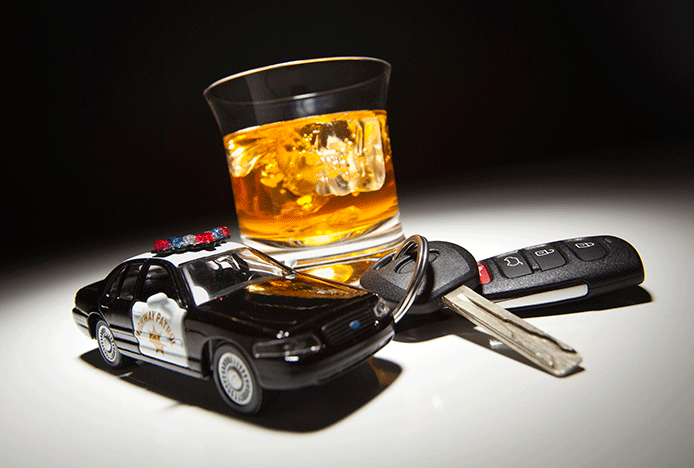Houston DWI Lawyer

DWI/DUI
Criminal Defense
If you or a loved one has been arrested for DWI/DUI, you will need aggressive and experienced representation to secure your rights. You need someone who is willing to fight for the best possible outcome. Contact Rick today to arrange a free consultation with an experienced Houston Criminal Defense Attorney.
Among many other potential consequences a DWI 1st offense can result in:
- Minimum jail Sentence of 3-180 days
- Fines Up to $2000
- License Suspension of 90-365 days
- Surcharge Payments to DPS for 3 years
- Increased Insurance Premiums
You need a lawyer who knows what he is doing. You need a lawyer who has defended countless DWI cases. You need a lawyer who is Board Certified in Criminal Law. You need Rick Oliver Attorney at Law.
HOUSTON LAWYER FOR DWI
Texas boasts the highest incidence of alcohol-related fatalities in the Country. No other misdemeanor offense is as publicized or politicized in terms of its danger to public safety in the state of Texas. As a result, many motorists who may not be legally intoxicated are nevertheless arrested and charged with driving while intoxicated. But, billboard signs along the highway warning motorists that if they drink and they drive they will go to jail are not in fact the law. Despite its hubris the state is actually required to prove a motorist is drinking and driving WHILE intoxicated. Because of the scientific and forensic testing often utilized in the prosecution of these offenses, DWI defense is generally considered to be the most complex of the misdemeanor offenses to defend.
DWI is not limited to those who are drinking and driving while intoxicated. In Texas, the legal deifnition for “Intoxicated” means “not having the normal use of mental or physical faculties by reason of the introduction of alcohol, a controlled substance, a drug, a dangerous drug, a combination of two or more of those substances, or any other substance into the body; or having an alcohol concentration of 0.08 or more.”
In other words, the sleepy and sleep-deprived motorists who admit to taking certain prescription drugs can also be prosecuted for DWI. Additionally, any combination of alcohol and prescription or illegal drugs that causes a person to appear to have lost the normal use of mental or physical faculties can lead to a prosecution for DWI.
There is no such thing as a “Weekend Warrior” who practices DWI defense. An attorney either commits the time and effort required to master DWI defense, or they do not. Rick Oliver has committed vast resources in the pursuit of DWI defense knowledge and training and has the professional competence necessary to successfully defend against the state’s attempt to secure a conviction.
A conviction for misdemeanor DWI can be a tough life-lesson. A conviction for felony DWI can be life-altering. It is impossible to be charged with a felony DWI without the existence of certain additional factors. The most common type of felony DWI occurs when a citizen is accused of his or her third (or more) offense.
The first thing to remember about a felony DWI is that the state must still prove the underlying DWI. The fact that an offense is charged as a felony does not change the character of the offense itself. Mostly, what is different about a felony DWI is the exposure to the client.
The penalties associated with a 3rd degree felony DWI could include:
- Up to a $10,000 maximum fine
- Two to Ten years in Prison
- Suspended Drivers license for up to two years
- $2000 every year for three years to keep your drivers license
Clearly, the exposure to the client in terms of the potential that you might be sent to prison is greater. However, that does not mean you should simply throw yourself upon the mercy of the court and ask for anything short of a prison sentence.
The Law Office of Rick Oliver Houston will thoroughly investigate the facts of the case to determine whether the state can prove the accusation.
A conviction for a DWI 1st offense is a Class B misdemeanor in the state of Texas.
The potential penalty for a second conviction is a more serious offense classified as a Class A misdemeanor. No conviction is a good conviction. However, a conviction for a DWI 2nd offense has the potential to create more problems than merely those associated with the conviction itself. All DWI convictions are available in future prosecutions for enhancement. In Texas, the first two convictions are treated as misdemeanor offenses.
However, a third arrest would subject a person to prosecution for a felony. It is the combined exposure between the offense itself and the availability of future enhancement that should impel any person accused of a second DWI to seek and retain the best legal defense available. Some of the potential consequences for a conviction of a DWI 2nd offense include:
A 2nd offense DWI carries penalties that include:
- Up to $4000 maximum fine
- Up to 1 year in jail
- Suspended Drivers license for up to 2 years
- $1500 DPS Driver Surcharge
- Class A Misdemeanor
Driving while under the influence with a child passenger is considered a state jail felony.Even if you have never had a prior DWI conviction you will still face penalties associated with a state jail felony due to the fact that you were arrested under suspicion of DWI while a child under the age of 14 was in the vehicle with you.
DWI (Child Passenger) penalties could be but not limited to:
- Incarceration in State Jail Facility for no less than 180 days and up to 2 years.
- $10,000 fine
Texas has a zero tolerance law when it comes to underage DUI, if you are under the age of 21, operating a motor vehicle and caught drinking you will more than likely be convicted of a DUI. In order to be charged all a police officer has to do is notice the smell of alcohol on a minor’s breath and you they will be charged and arrested. Under the controlling Statute Texas Alcohol Beverage Code 106.04.
Juvenile /Underage DUI penalties could be:
- Up to 20-40 hours of community service and mandatory alcohol awareness courses (1st offense) and Deferred adjudication may be granted (conviction can be expunged after 21st birthday)
- Up to 40-60 hours of community service and mandatory alcohol awareness courses (2nd offense) convictions may not be expunged from criminal records
- Up to 40-60 hours of community service, mandatory alcohol awareness courses and no longer eligible for deferred adjudication
Intoxication Assault Intoxication assault occurs when a passenger is severely injured, and this can lead to charges being brought against the driver of the vehicle. Although no malicious intent to harm the passenger was involved the only evidence a prosecutor needs to provide is that the driver was intoxicated at the time of the accident.
An Intoxication Assault conviction can carry a sentence of up to 10 years in prison. Let’s not forget about the fines which could be as high as $10,000, a suspended drivers license, a tarnished criminal record that will reflect a third-degree felony and the possible loss of employment and a college education. The risks are beyond measure if you do not have an experienced attorney in your corner to assist you with the legalities of an intoxication assault.
Intoxication Manslaughter happens when an intoxicated individual accidentally kills someone while driving. It is a felony and the consequences are: Incarceration, costly fines, a criminal record and restricted driving privileges. You need an aggressive attorney well versed in DWI/DUI defense on your side to help you.
Houston is committed to assisting people facing intoxication manslaughter and other DWI related charges. People who are charged with manslaughter intoxication offenses are generally first time offenders. Once you come to us, we will take over your case and get you headed in the right direction as far as what your rights are.
Intoxication Manslaughter is a severe offense!
Police and prosecutors often seek the greatest penalties for the alleged offenses. This includes:
- Two years minimum and up to 20 years maximum sentence
- Up to a $10,000 fine
- 240 to 800 hours of community service
- A loss of driving privileges
- Permanent criminal record
Boating While Intoxicated (BWI) in Texas is equivalent to Driving While Intoxicated (DWI) charges as far as punishments are concerned. Many people are unaware they are at risk for being charged with a BWI when operating their boat. It is important to know that the same definition of intoxication applies for both charges.
Penalties for BWI are subject but not limited to:
- First offense (Class B Misdemeanor): 0-180 days in jail and fine up to $2,000;
- Second offense (Class A Misdemeanor): up to 1 year in jail and fine up to $4,000;
- Third offense: (3rd degree felony): 2-10 years in prison and fine up to $10,000.
A suspension of your privilege to operate a motor vehicle may not be the end of the discussion. Potentially, you may be able to petition the court for something called a restricted or occupational drivers license. The court may impose certain limitations on your driving privilege during the period of suspension, but, generally, this type of license will give you the ability to drive to and from school or work, and also allow you to drive so that you can take care of normal household-related activities.
Call Rick Oliver Attorney at Law to discuss your situation so that he can determine whether you might be eligible to pursue the filing of a restricted or occupational drivers license.
Rick Oliver Law Firm
Rick was licensed to practice law in the state of Texas in 2007 and began his solo practice on June 1, 2008. Rick did not come from a family of wealth or of lawyers. When he started, he did not know a single attorney–let alone a criminal defense attorney–in the City of Houston. He built the foundation of a successful practice with little more than a code book and a can-do attitude.
Why Choose Our Firm
Because Competence Means Freedom
Experience
In 2016, less than seven years after becoming licensed, Rick was certified by the Texas Board of Legal Specialization in his practice area of Criminal Law. His practice is almost entirely dedicated to criminal trial and appellate law. He writes extensively and has been published in various forums across the state.
Credentials
Out of 70,000 attorneys in the State of Texas, less than 7,000 are board certified. The Texas Bar has estimated that only 10 percent of all Texas Bar members achieve this important distinction. But, lawyers can seek board certification in a number of different practice areas. As of 2016, there were only 842 lawyers IN THE ENTIRE STATE OF TEXAS who are Board Certified in Criminal Law.
Review Your Case
All initial consultations are risk-free and at no cost to you. It is recommended that Rick give your case a second look, so that you know all the options available.
What Our Clients Say



Request a Free Consultation
No Cost & No Obligation
